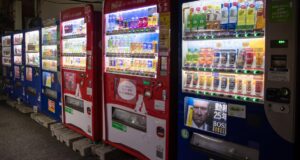For most travelers, especially during the summer, the top priority is to relax. However, that isn’t an easily attainable goal for many people. The key dilemma is how to make the most of those precious days off. Is it best for you to fill them with a lot of activities? Or is it beneficial to just do nothing? How much time do you need to decompress? Will a short getaway do the job? The answer is dependent on factors such as your personality.
Anticipation
Early planning often brings people more joy than the actual vacation does. A 2010 study by tourism research lecturer Jeroen Nawijn examined the behavior of 1,530 Dutch adults and found that the numerous individuals who took a vacation attained the greatest amount of happiness leading up to the trip. Booking your trip well ahead of time not only gives you a logistical edge but also helps build anticipation, which in turn can increase happiness. Planning early can also lessen the stress of a last-minute scramble.
The Longer Doesn’t Necessarily Mean The Better
Taking several short trips (3 or 4 days) may be more beneficial than taking one long vacation. Several short trips provides multiple opportunities to experience the pleasure gained from anticipation. According to Professor Nawijn, the length of stay has very little influence on how people feel during or after a vacation. This simply means that if you take only big vacation annually, then it’s over and then you have to wait until next year to have something to look forward to.
Make Your Time Count
While length of vacation may vary, experts generally believe that true relaxation cannot be rushed. Al Gini, a professor of business ethics at Loyola University of Chicago says “It takes one week to get into it and really start to unwind.” He highlighted how people often take three-day vacations and work right up until the end. Those first three days are full of exhaustion and confusion. His advice is to allow yourself to slow down leading up to your vacation trip by setting aside a few days for packing and wrapping up things at your job. Figuring in time to wind down at the conclusion of your trip by lounging next to the pool instead of running around doing sightseeing activities also helps you avoid exhaustion.
Immerse Yourself In An Activity
Activities that completely absorb you can be good while on vacation. People who make productive use of their time are found to be happier than those who are idle. That doesn’t mean you have to take some kind of intensive activity-related course, in fact, staying busy doesn’t have to be physical. Activities such as exploring the local culture can be beneficial. You can also take a cruise and enjoy the experience, or sign up for an archaeological tour. While it may not always be possible to end a trip on a high note, planning at least one special activity can make a difference in your overall experience.
 Living There
Living There


